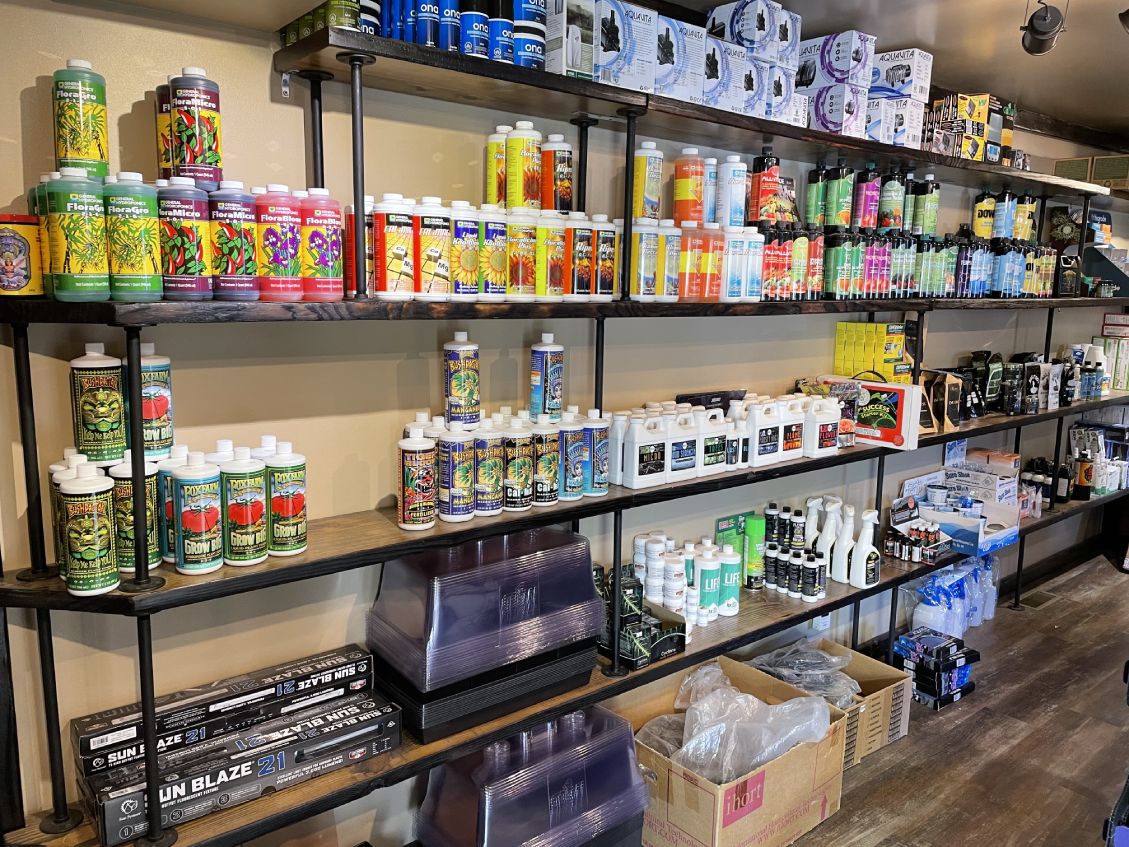The Indoor Earthworm Method: Your Key to Flourishing Plants Through Growing
The Indoor Earthworm Method: Your Key to Flourishing Plants Through Growing
Blog Article
Enhance Your Horticulture Abilities With Hydroponics: Exploring Benefits
In the world of gardening, hydroponics has actually emerged as a technique that uses a range of benefits to both seasoned fanatics and novices alike. The practice of cultivating plants without soil might appear unique in the beginning, yet its advantages are worth thinking about - The Indoor Earthworm. As we look into the globe of hydroponic horticulture, we reveal a variety of benefits that not just boost plant growth but additionally provide distinct chances for individuals seeking to raise their horticulture abilities. By discovering the benefits that this innovative method deals, one can obtain understandings into how hydroponics can transform the means we come close to gardening.
Benefits of Hydroponic Horticulture
Hydroponic gardening supplies various benefits due to its reliable use sources and precise control over plant development problems. By providing plants with straight access to nutrients dissolved in water, hydroponic systems get rid of the need for dirt, decreasing water use by up to 90% contrasted to conventional soil-based cultivation. This effective nutrient delivery approach likewise enables faster plant growth prices and greater yields, making hydroponic gardening an attractive choice for taking full advantage of minimal room and sources.
Additionally, the regulated atmosphere of hydroponic systems allows cultivators to enhance variables such as ph, moisture, and temperature levels, leading to much healthier plants with decreased threat of illness and parasites. This specific control over growing conditions not just promotes faster and a lot more consistent plant development however additionally enables year-round farming despite external climate condition.
Faster Plant Growth With Hydroponics
Using sophisticated nutrient delivery systems, hydroponic horticulture facilitates accelerated plant development prices compared to traditional soil-based cultivation methods. In hydroponic systems, plants have direct accessibility to necessary nutrients dissolved in water, enabling optimum absorption without the requirement to expend power establishing considerable origin systems to browse for nutrients in the dirt. This effective nutrient distribution device makes it possible for plants to reroute their energy in the direction of durable vegetative development and respected fruiting or blooming.
Furthermore, the regulated atmosphere in hydroponic configurations ensures that plants receive the excellent conditions for development regularly. Variables such as temperature, light, moisture, and ph levels can be thoroughly kept track of and adapted to develop the optimum growing environment for every plant selection. By eliminating the variability existing in soil-based horticulture, hydroponic systems provide plants with a steady and desirable setting that optimizes their development potential.

Water Preservation Conveniences
Hydroponic horticulture utilizes up to 90% much less water contrasted to typical soil-based gardening methods. In hydroponics, the nutrient option is provided straight to the plant roots, making certain optimal water uptake and lowering water loss.
Moreover, hydroponic systems permit precise control over water usage, with the ability to keep track of and change nutrient degrees based on plant requirements. This targeted approach stops overwatering, a typical problem in soil-based gardening, more adding to water conservation efforts. By optimizing water efficiency and lessening waste, hydroponic gardening emerges as a environmentally friendly and you could try here sustainable option for people looking to minimize their water intake in gardening practices.
Year-Round Plant Farming

By regulating aspects such as light, temperature, and nutrient levels, hydroponic systems allow plants to prosper despite external weather. This constant environment permits continual plant growth and harvest, providing a trusted supply of fresh fruit and vegetables even in the dead of winter season.
Furthermore, More about the author the ability to grow plants year-round in hydroponic systems opens chances for farmers to trying out a wider variety of plants, increase their growing seasons, and rise general performance. This versatility and integrity make year-round plant growing in hydroponics a valuable tool for both enthusiasts and business cultivators looking to maximize their horticulture efforts.
Enhancing Horticulture Abilities Via Hydroponics
Developing effectiveness in hydroponics can empower garden enthusiasts with a much deeper understanding of plant cultivation techniques and boost their total gardening abilities. Hydroponic systems give a regulated atmosphere where garden enthusiasts can carefully keep an eye on and change aspects such as nutrient degrees, pH equilibrium, and lights problems to maximize plant growth. By understanding these components, gardeners can tweak their abilities and knowledge, resulting in more successful harvests and healthier plants.
Furthermore, hydroponic horticulture difficulties traditional notions of soil-based cultivation, motivating garden enthusiasts to assume hop over to here outside package and explore ingenious growing approaches. This testing can foster creativity and analytic abilities, as garden enthusiasts learn to adjust and repair problems special to hydroponic systems. Furthermore, the performance of hydroponic configurations, such as vertical gardens or nutrient film techniques, can educate gardeners exactly how to make best use of area and sources efficiently.
Final Thought
To conclude, hydroponic horticulture uses various advantages such as faster plant development, water conservation, and year-round cultivation. By exploring the advantages of hydroponics, people can improve their gardening abilities and accomplish effective plant development. Take into consideration integrating hydroponic methods right into your gardening techniques to make best use of effectiveness and productivity in your yard.
As we delve into the world of hydroponic horticulture, we uncover a plethora of advantages that not only improve plant development however likewise give special chances for people looking to raise their gardening abilities.Using sophisticated nutrient shipment systems, hydroponic horticulture promotes sped up plant development prices contrasted to traditional soil-based farming approaches. By getting rid of the irregularity existing in soil-based horticulture, hydroponic systems supply plants with a beneficial and stable setting that maximizes their development possibility.
Enhancing the sustainability and productivity of gardening techniques, year-round plant farming in hydroponic systems provides a dependable and constant approach for cultivating a variety of crops regardless of seasonal limitations. The Indoor Earthworm.In final thought, hydroponic gardening supplies numerous advantages such as faster plant development, water conservation, and year-round farming
Report this page